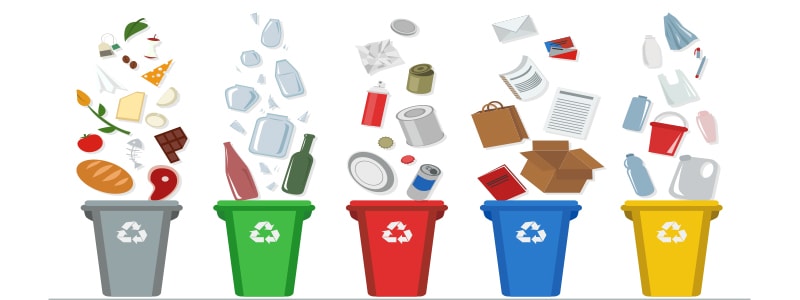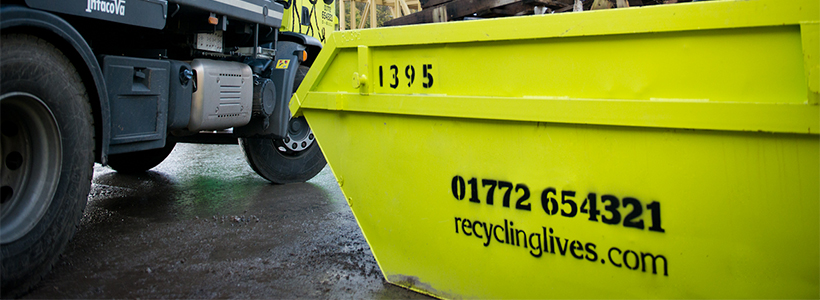
How To Easily Classify Different Types Of Waste
26th Apr, 2017
Ultimately, waste disposal is all about making sure the right stuff goes in the right place. Classifying it correctly is a vital part of this process; we talked last week about EWC Codes (List Of Waste Classifications), which are aimed at doing exactly that. But how do you know which ones you need?
How To Classify Your Waste

The first thing to note about classifying your waste is that it’s not as tricky as it sounds. You don’t have to meticulously go through it and pick out every single individual thing in there – who’d want to do that? It’s more about giving the people who come to collect your skip (that’s us!) a rough idea of what’s in there, so that we can make sure we process it appropriately. Most of the time we’ll be able to work it out from context anyway – if you’re a business, by definition we’ll probably be collecting commercial waste. If you’re a homeowner, it’ll be domestic waste. But the more detail we can get, the better.
Before we pick up your skip, it’s worth having the correct EWC Codes on hand (and the SIC codes if relevant) so that we know exactly what we’re collecting, helping us get the process done quickly and speedily.
What Sort Of Waste Types Are There?
There will be a fair bit of crossover between different types of waste anyway – like glass bottles, for instance. But here are some of the main ones:
Domestic Waste:
This is stuff that the average household produces. You’ll know the sort of things – after all, we all throw them away every day! Things like paper, plastic, ceramics, glass, polythene, textiles (read: old clothes), food waste and the like all count as domestic waste.
Commercial Waste:
Anything produced by a business counts as commercial waste, even if the stuff itself is similar to what you’d find in domestic waste. Empty printer cartridges, packing materials, damaged or broken products, polythene and plastics and printer paper are all examples of the sorts of things you’d find in commercial waste.
Clinical Or Medical Waste:
Normally produced by hospitals and medical institutions, clinical waste has to be treated carefully because it’s potentially harmful. Blood from patients, sharp pointed materials (like needles) and amputated limbs all count as clinical waste.
While you may not have any amputated limbs lying about the place (we hope!), your rubbish might still count as clinical waste if it includes medication or home injections. Ideally you need to dispose of that separately – hospitals and pharmacies usually have collection facilities – but if you’ve accidentally put it in the general rubbish, at the very least let us know!
Hazardous Waste:
The UK government (and us!) are very big on proper disposal of hazardous waste – in fact, to dispose of it improperly is illegal. Fair enough, when you consider this is the stuff that’s poisonous or explosive. If you’re worried about whether your waste is hazardous, well most of the time, classifying it comes down to common sense. Batteries are well-known examples. Many products also have orange and black “Danger” symbols on them for exactly that purpose.
If you’re unsure, though, you can search EWC codes by text; which means that you can type in the name of the waste, and the search results will tell you whether or not it’s hazardous. Be sure to let us know about that stuff, too! We may be able to take it, or we might have to organise a separate collection, depending on what it is.
Should I Still Hire A Skip To Deal With It?

Almost certainly! If you know what you’re getting rid of – for example if it’s domestic waste – you’ll probably have no problem. If you’re in doubt about anything you’re getting rid of though, it’s always worth trying to find its EWC Code before you hire a skip, or if you can’t find it you can always call us on 0300 100 0028, and we’ll be able to advise you.
Visit our homepage to enter your postcode and phone number, and start the skip hire process today!
Don’t forget to follow us on Twitter: @SkipHireNetwork